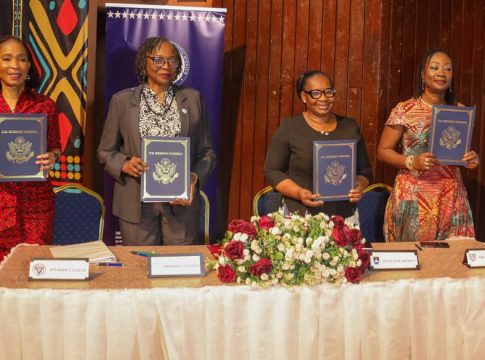In a groundbreaking webinar, Pathfinder International and the Center for Communication and Social Impact (CCSI) brought together key stakeholders to tackle the critical issue of maternal health in Nigeria.
The virtual event, held on July 23, 2024, emphasized the need for collective advocacy and accountability to drive meaningful change.
Amina Aminu Dorayi, Country Director of Pathfinder International, stressed the importance of exploring advocacy strategies to hold stakeholders accountable for their commitments to improving maternal health outcomes.
“We must recognize that maternal health is the cornerstone of public health, and it’s essential to ensure everyone has access to quality care to enable families and communities to thrive,” she emphasized.
Dr. Amina lamented the high rate of maternal mortality in Nigeria despite numerous interventions, highlighting the need for strengthened multi-state partnerships to advocate for women’s health.
READ MORE: NNPC Website Crashes Due To Overwhelming Response From Job Vacancy Announcement
“Collaboration among government agencies, healthcare providers, and the community is crucial to our work, and essential to achieving sustainable progress in maternal health,” she added.
Mrs. Babafunke Fagbemi, Executive Director of CCSI, outlined her organization’s contributions to the advocacy effort, including strategic communication and media advocacy to inspire change.
“This project allows us to shape the advocacy agenda using the SMART methodology, ensuring we achieve the desired results,” she noted.
“We’re delighted to support existing policies that promote women’s health and showcase efforts to improve maternal health in Nigeria.”
The webinar featured guest speakers Dr. Folashade Oludara, Head of Family Health and Nutrition Directorate, Lagos State Ministry of Health, and Dr. Imam Wada Bello, Director of Public Health and Disease Control, Kano State Ministry of Health.
They shared insights into policy documents, challenges, and potential solutions for maternal health in their respective states.
Dr. Oludara highlighted policy documents such as six months of maternity leave for exclusive breastfeeding and free antenatal and postnatal care.
However, she identified challenges like overstretched facilities, staff apathy, financial constraints, medical litigation, and poor documentation.
She recommended strategies like partner support, women’s enrollment in health schemes, and skill updates for healthcare workers to address these gaps.
Dr. Bello emphasized the need for dedicated funding for maternal health, citing government reluctance to share budget data as a significant challenge.
He advocated for community-based monitoring, budget tracking, and maternal death audits as accountability mechanisms to drive progress.
“Strategic advocacy is crucial to improving maternal health. We need increased resource allocation and ensured fund utilization to improve outcomes,” he stressed.
Salisu Yusuf, Public Relations Officer of the Kano State-Led Accountability Mechanism (KanSLAM), called for policy reforms to address challenges like inadequate facilities, shortage of trained healthcare professionals, and social-economic factors.
He emphasized the importance of community engagement, sustainable funding, and long-term financial support for maternal health programs.
The webinar underscored the need for collective action, accountability, and sustained advocacy to improve maternal health outcomes in Nigeria.
By working together, stakeholders can drive meaningful change and ensure that every individual has access to quality care.




